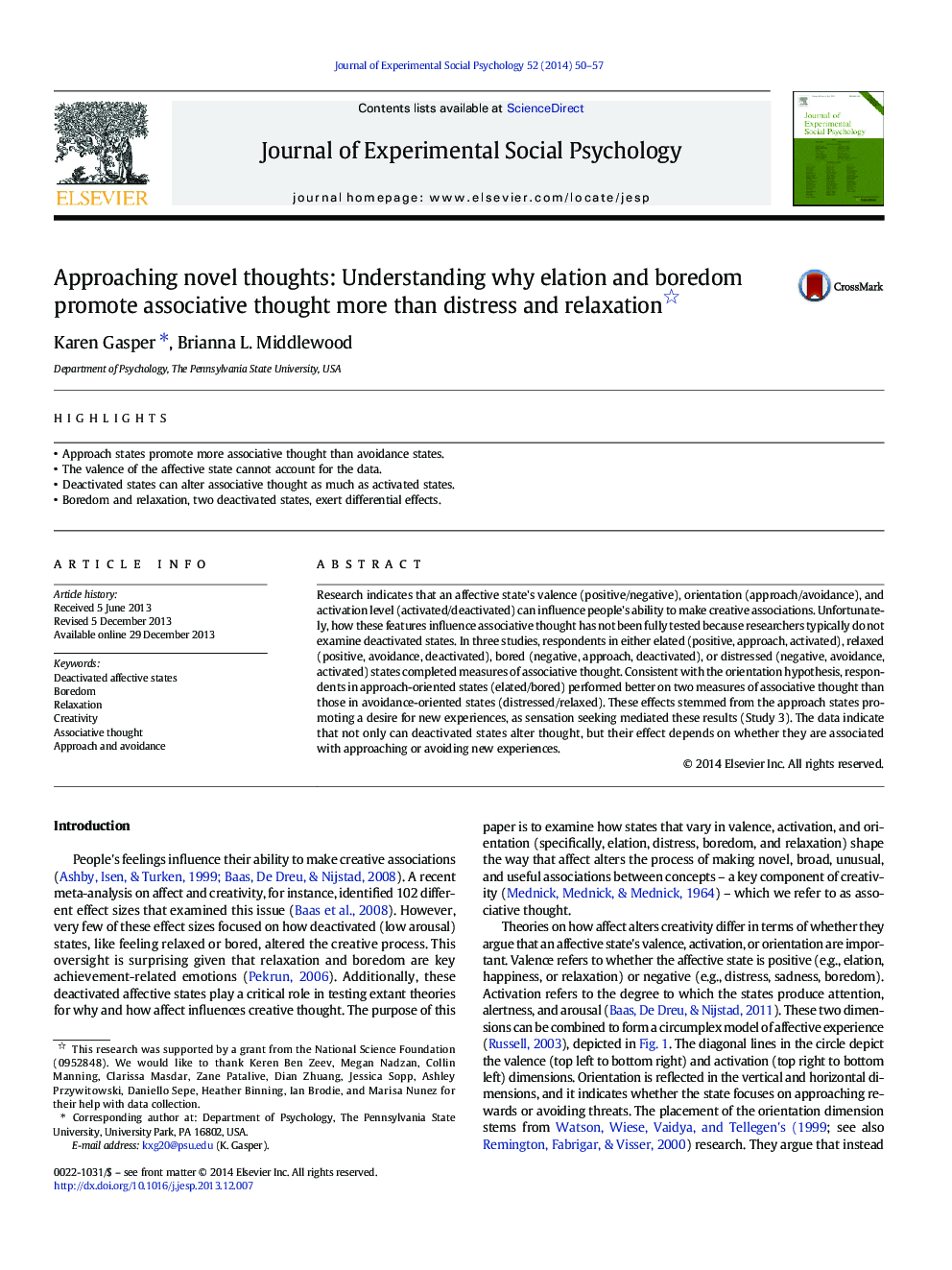| Article ID | Journal | Published Year | Pages | File Type |
|---|---|---|---|---|
| 947760 | Journal of Experimental Social Psychology | 2014 | 8 Pages |
Abstract
Research indicates that an affective state's valence (positive/negative), orientation (approach/avoidance), and activation level (activated/deactivated) can influence people's ability to make creative associations. Unfortunately, how these features influence associative thought has not been fully tested because researchers typically do not examine deactivated states. In three studies, respondents in either elated (positive, approach, activated), relaxed (positive, avoidance, deactivated), bored (negative, approach, deactivated), or distressed (negative, avoidance, activated) states completed measures of associative thought. Consistent with the orientation hypothesis, respondents in approach-oriented states (elated/bored) performed better on two measures of associative thought than those in avoidance-oriented states (distressed/relaxed). These effects stemmed from the approach states promoting a desire for new experiences, as sensation seeking mediated these results (Study 3). The data indicate that not only can deactivated states alter thought, but their effect depends on whether they are associated with approaching or avoiding new experiences.
Keywords
Related Topics
Life Sciences
Neuroscience
Behavioral Neuroscience
Authors
Karen Gasper, Brianna L. Middlewood,
